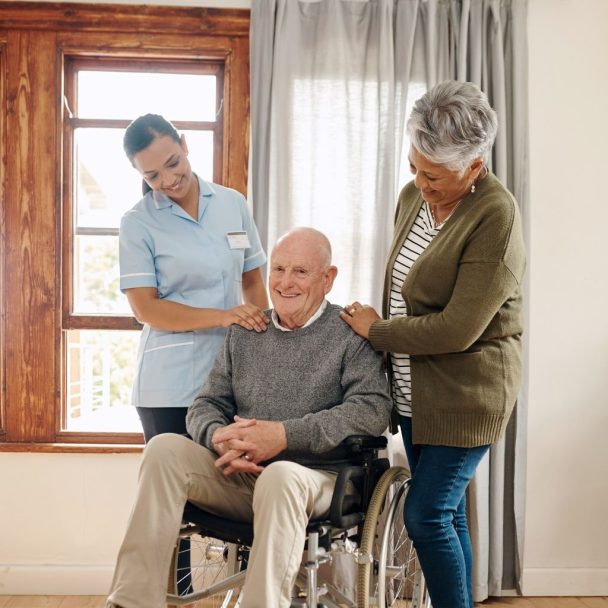 Spousal impoverishment is a concern for married couples when one spouse needs long-term care and applies for Medicaid. If one spouse requires care in a skilled nursing facility and the other remains at home, the spouse at home (the “Community Spouse”) might face significant financial hardships.
Spousal impoverishment is a concern for married couples when one spouse needs long-term care and applies for Medicaid. If one spouse requires care in a skilled nursing facility and the other remains at home, the spouse at home (the “Community Spouse”) might face significant financial hardships.
The cost of long term care in Pennsylvania is soaring, with monthly expenses ranging from $10,000.00 to $15,000.00, or $120,000 – $180,000 on an annual basis. The high cost of nursing homes combined with Medicaid’s strict income and asset requirements risk leaving the Community Spouse with little income and assets. A primary focus of our practice is helping clients understand what they can do now to protect assets from nursing home spending in the future.
Expediting qualification for long term care assistance can be an invaluable piece of a larger, comprehensive estate and asset protection plan. To learn more about the Medicaid application and qualification process, click here.
An important factor that we consider when determining the best planning approach for each client’s unique situation is the income and asset protections in federal and state law for married couples, specifically the spouse of a Medicaid recipient living in a nursing home, that is still living at home (the “Community Spouse”). In 2023, the Community Spouse can keep as much as $148,620 without putting the sick spouse’s eligibility for Medicaid long term care at risk. Note there are many ways to protect more than this, which is something elder law attorneys do for clients.
In response to concerns that the Community Spouse could be bankrupted by care spending when the other spouse enters a nursing home (the “Institutionalized Spouse”), Congress enacted legislation in 1988 known as the “Spousal Anti-Impoverishment Act.” This legislation mandates that the non-institutionalized Community Spouse be permitted to retain a certain amount of monthly income and assets so that he or she is protected from financial ruin if the other spouse needs long term care.
The monthly income that a Community Spouse is allowed to retain is known as the Monthly Maintenance Needs Allowance (MMNA). The MMNA is calculated based on the federal poverty guidelines and, in Pennsylvania, the MMNA is adjusted annually on July 1st.
The amount of a couples’ assets that the Community Spouse may retain is known as the Community Spouse Resource Allowance (CSRA).
The Centers for Medicare and Medicaid Services (CMS) has recently released the 2023 Spousal Impoverishment Standards. By including the figures listed below in a carefully crafted asset protection strategy, the Community Spouse may be able to protect tens of thousands or even hundreds of thousands of dollars from Medicaid spend-down.
Monthly Maintenance Needs Allowance (MMNA): (These are the minimum and maximum amounts in monthly income a Community Spouse may have if their own income is not enough to live on, and he/she must take some or all of the institutionalized spouse’s income.)
Minimum MMNA: $2,288.75 ($2,861.25 for Alaska and $2,632.50 for Hawaii) until July 1, 2023.
Maximum MMNA: $3,715.50
Community Spouse Resource Allowance (CSRA): (the minimum and maximum amounts a state may allow the Community Spouse to retain without a hearing, court order or other legal strategy)
Minimum CSRA: $29,724
Maximum CSRA: $148,620
Home Equity Limits
Minimum: $688,000
Maximum: $1,033,000
Understanding the spousal protections available to the Community Spouse is paramount to protecting your financial security if your spouse requires long term nursing home care.
Please contact us today to schedule an appointment to proactively assess your specific family and financial circumstances to see how long term care asset protection planning could protect your financial legacy for your heirs. 610-933-8069.
Want to learn more about how to protect assets from long term care? Click here to view our recent presentation on Medicaid Asset Protection Trust Planning.
Check out our other great articles throughout this site that more specifically address the different ways to protect and preserve your assets: Click here for more articles!
If you are a PA Resident: Click here to receive the elder law guides.


